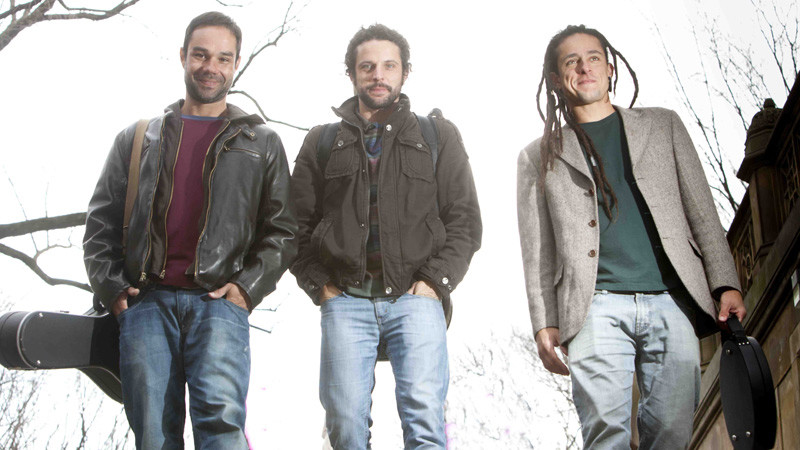While choro isn’t nearly as well known as its younger siblings samba, forro and bossa nova, no Brazilian musical style has proven as enduring and creatively resilient. In Brazil, a new generation is pushing the playfully virtuosic tradition into uncharted territory — the music’s fourth or fifth renaissance over the past century. Abroad, the style is also finding an avid audience, and the East Bay has become ground zero for North American choro consciousness.
The Second Annual Berkeley Festival of Choro brings a profusion of U.S. and Brazilian talent — to Freight & Salvage on May 2, and the Berkeley Arts Festival performance space on May 3 — with concerts, workshops, lessons and jam sessions centering on Trio Brasileiro. Featuring mandolinist Dudu Maia and brothers Douglas and Alexandre Lora on guitar and pandeiro respectively, the celebrated São Paulo/Brasilia-based ensemble is augmented in Berkeley by special guest Eduardo Neves, a revered Brazilian woodwind expert.
“They aren’t well-known here, not like Hermeto Pascoal or Gil Gilberto, but we’re hoping that’ll change,” says Brian Rice, an Oakland-based expert on the frame drum pandeiro, a component essential to choro.
Rice co-directs the Festival of Choro with flutist Jane Lenoir, who’s also his bandmate in the Berkeley Choro Ensemble, a quartet with clarinetist Harvey Wainapel and Rio-born guitarist Ricardo Peixoto that shares Saturday’s Freight bill with Trio Brasileiro.
“We’re basically opening for Brasileiro,” Rice says. “The fun part of this concert is that we got a grant from the San Francisco Friends of Chamber Music to pay our artist fees and commission a new work by Harvey, and both ensembles will join together for the new piece’s premiere.”


